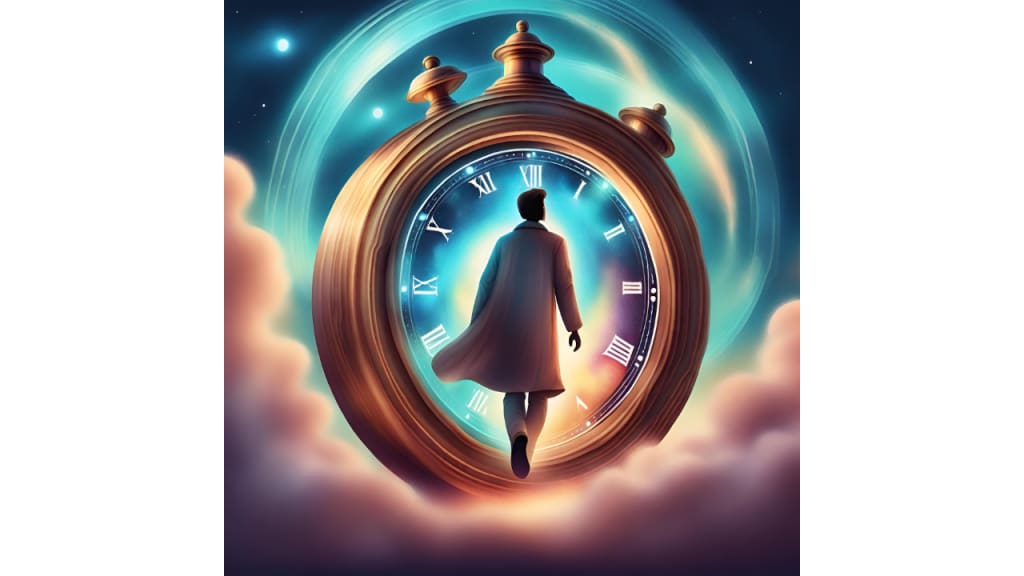Is Time Travel Possible? Exploring the Science Behind It
Unlocking the Mysteries of Time Travel

Time travel has long been a captivating concept in science fiction, but recent research suggests that it might not be as far-fetched as we once believed. While traveling to the future is theoretically feasible, venturing into the past presents some significant challenges and paradoxes. Let's delve into the science of time travel and explore its possibilities.
Time Travel Basics
At its core, time travel revolves around three fundamental factors: speed, space, and gravity. According to the principles of relativity, time is not a constant; it varies depending on an object's speed and proximity to massive gravitational sources. This means that someone moving at close to the speed of light or residing near a black hole would experience time differently than someone at rest on Earth.
In fact, time dilation is already occurring in our universe. Astronauts aboard the International Space Station (ISS), for example, travel at high speeds relative to the Earth's surface. As a result, they experience time slightly slower than those of us on the planet. For instance, the Kelly twins, Scott and Mark, who are identical, demonstrate this effect. Scott, having spent more time in orbit, is technically a few milliseconds younger than his twin brother on Earth.
Traveling to the Future
Traveling to the future, in theory, is more attainable. As our current technology doesn't allow for speeds anywhere near the speed of light, the time shifts experienced by astronauts in orbit are minuscule. However, if we were to build spacecraft capable of traveling at 99.999% the speed of light, significant time dilation would occur. For a day of travel on such a spacecraft, nearly 197 years would pass on Earth.
Gazing into the Past
Interestingly, we are all time travelers in a way when we look at the night sky. Light from distant stars takes time to reach us, meaning we see these stars as they appeared in the distant past. For example, the North Star, Polaris, is approximately 323 light-years away, so when we observe it, we are actually peering 323 years into its past.
The Challenge of Traveling to the Past
Traveling back in time presents formidable challenges and paradoxes. The famous "grandfather paradox" suggests that altering the past could lead to self-contradictions. If you went back in time and prevented your own grandfather's birth, you would never have been born, and thus, couldn't have traveled back in time to initiate the change in the first place.
Scientists have grappled with these paradoxes and have proposed that the universe might somehow correct itself to avoid inconsistencies. For instance, in the grandfather paradox, you might discover that the man you killed wasn't truly your grandfather, but rather, you were adopted.
Wormholes and Other Theories
One intriguing idea for time travel involves wormholes, hypothetical tunnels in space that might connect distant points, both in space and time. While no wormholes have been found, they remain a theoretical possibility.
Another concept is the "Tipler Cylinder," a time machine involving a long, rotating cylinder filled with dense matter. However, this approach requires an infinitely long cylinder or materials beyond our current understanding.
A newer theory by physicist Amos Ori suggests creating a donut-shaped region in space where timelines converge. This could potentially allow time travelers to enter the past, but it's highly dependent on manipulating gravitational waves, a technology we don't currently possess.
Conclusion
While time travel is a captivating idea, it remains primarily within the realm of theoretical physics and science fiction. Traveling to the future, though feasible in theory, would require technology and speeds far beyond our current capabilities. Traveling to the past presents even greater challenges due to paradoxes and the absence of practical methods.
Nevertheless, the exploration of time travel concepts pushes the boundaries of our understanding of the universe and may one day lead to groundbreaking discoveries. Until then, we continue to gaze into the past when we look at the night sky, pondering the mysteries of time and space.
About the Creator
Qandil fatima
Curious explorer of Earth's mysteries and space's enigmas. Join me on a cosmic odyssey through captivating stories. 🌌🚀👽






Comments (1)
Interesting